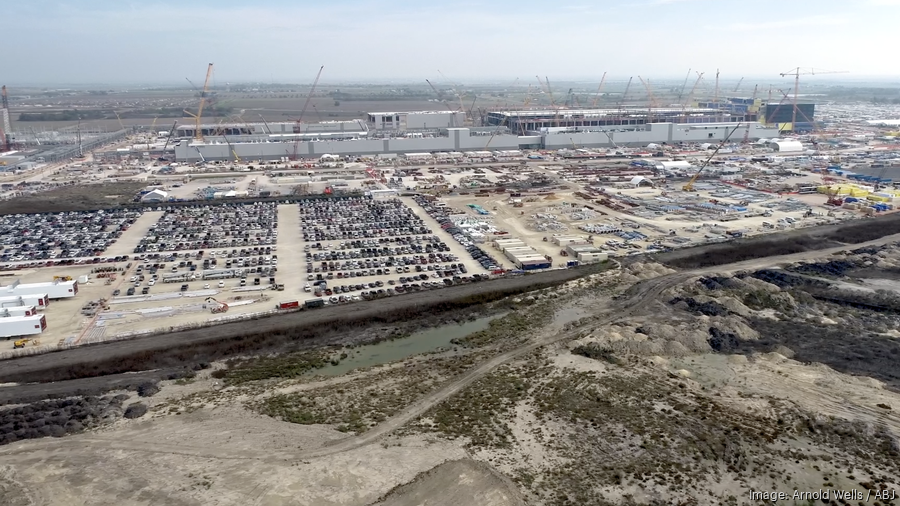Listen to this article 3 min
One of the largest economic development projects in the history of Texas is set to grow into one of the largest in America's history.
On April 15, representatives from Samsung Electronics Co. Ltd., the U.S. Department of Commerce and local officials will converge on the tiny town of Taylor, northeast of Austin, to announce a non-binding preliminary memorandum of terms for $6.4 billion to the company through the federal CHIPS and Science Act.
Those funds, federal officials said, will spur the South Korea-based electronics giant to widen its planned investment to $45 billion — it's slated primarily for Taylor, where Samsung is building a next-generation chipmaking plant, but also in Austin, where the chipmaker has operated for decades. New commitments include an additional fabrication line, a research-and-design facility and more that's set to come online by the end of the decade.
Samsung also plans to claim the Department of Treasury's Investment Tax Credit of up to 25% of its $45 billion in capital expenditures, or roughly $11.25 billion.
With $18 billion invested in Austin over the decades, and the $45 billion in the works, Samsung's investment tally for Central Texas would be a whopping $63 billion.
The latest investment will go a long way toward establishing what federal officials are calling a "Central Texas cluster" for Samsung at the two sites. In the next five years, it will lead to the creation of 4,500 manufacturing jobs, at least 17,000 construction jobs and tens of thousands of indirect jobs spurred by the supply chain moving to the region, federal officials said.
"This is amazing, I would say as someone who has worked every day on this for years," said U.S. Secretary of Commerce Gina Raimondo on April 14. "If you had said to me that we would be making an announcement this sweeping and this diverse, I'm not sure I would have believed you."
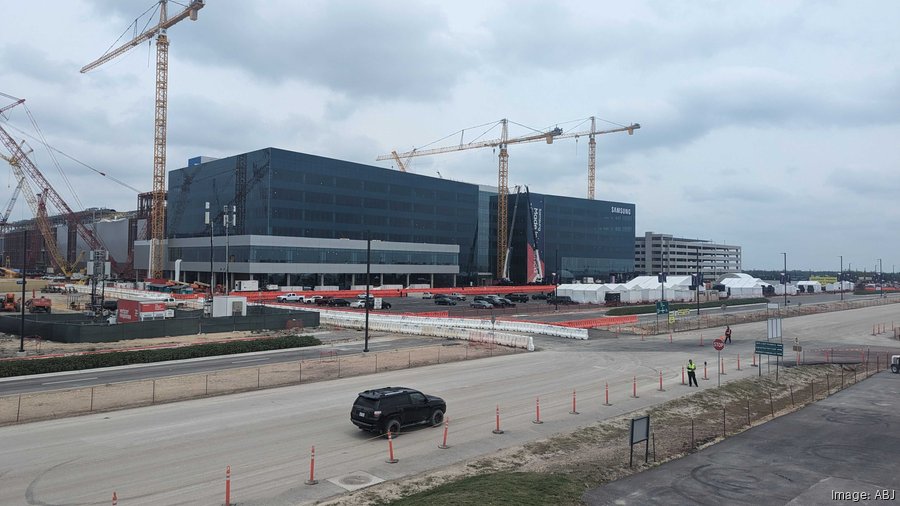
Raimondo said the investment will "propel Texas into a state-of-the-art semiconductor system." She recalled a visit she and President Joe Biden took in May 2022 to Samsung's plant in Pyeongtaek, South Korea, which is currently the largest semiconductor factory in the world. They both at the time said they aimed to bring something similar to the U.S. The new announcement makes "the President's vision a reality," she said.
Biden, who signed the $53 billion bipartisan CHIPS Act in 2022, said in a statement the investment will "cement Central Texas's role as a state-of-the-art semiconductor ecosystem," while also strengthening the country's alliance with the Republic of Korea.
"These facilities will support the production of some of the most powerful chips in the world, which are essential to advanced technologies like artificial intelligence and will bolster U.S. national security," Biden said.
Kye Hyun Kyung, president and CEO of the device solutions division at Samsung Electronics, said they will not only expand production facilities but strengthen the local ecosystem and position the U.S. as a global manufacturing destination.
"To meet the expected surge in demand from U.S. customers, for future products like AI chips, our fabs will be equipped for cutting-edge process technologies and help advance the security of the U.S. semiconductor supply chain," Kyung said in a statement.
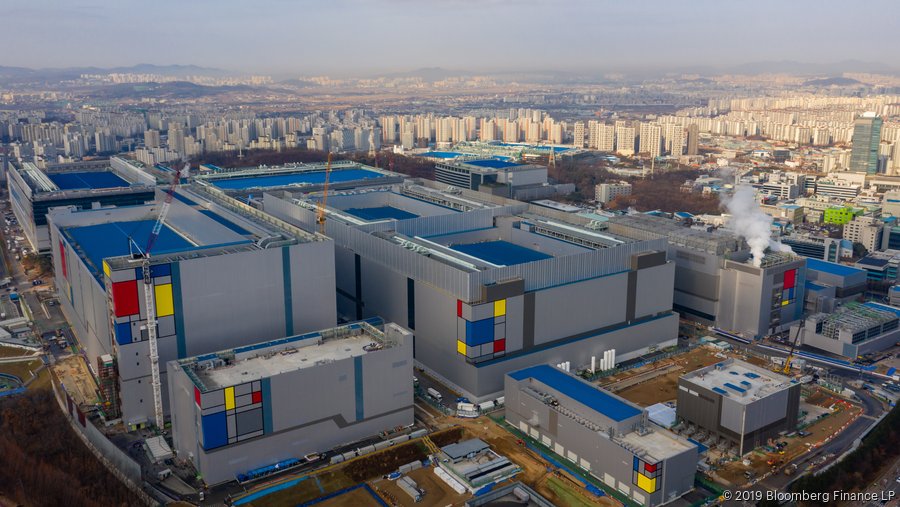
Plans for expansion
Plans for potential expansion have been on the docket dating back to 2022 when the company secured incentives that would allow it to potentially add 11 fabrication lines in Taylor and Austin. The April 15 announcement formalizes pieces of that additional investment.
The bulk of what was detailed by federal officials is slated for Taylor, where Samsung is deep into the construction of a $17 billion investment, although that number is likely an underestimate. The company recently revealed the first phase will include 4.7 million square feet of floor space, a fabrication plant, office space, a parking garage, central utility building and special utility supply facilities that will be operational this year. Samsung owns about 1,200 acres in Taylor.
The additional investment will create what federal officials called "a comprehensive advanced manufacturing ecosystem." In addition to producing 4-nanometer chips in the first fab, Samsung also plans to make 2-nanometer chips, with production scheduled to begin in 2026. The company will build a second fab, with production starting in 2027.
Samsung plans to add an advanced packaging facility for both memory and logic chips, which is a monumental addition because that piece of the process is typically handled in locales like Taiwan, officials said. Samsung will also build a research-and-design lab that will mark the fourth of its kind in the world, along with Samsung's Korea site, Taiwan Semiconductor Manufacturing Co. in Taiwan and Intel Corp. in Oregon. Both of those additions are expected to come online in 2027.
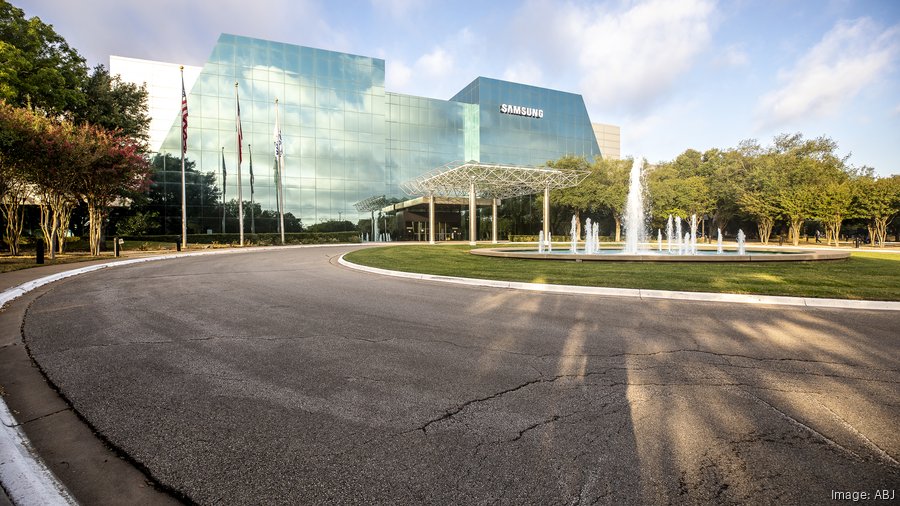
The remainder of the investment will happen at the North Austin site, where Samsung recently said it has invested $18 billion in two fabrication facilities that total 2.45 million square feet of floor space since it broke ground in 1996. The company has more than 600 acres in land holdings at the site.
The $45 billion investment "will boost our production capacity for chips in critical U.S. industries including aerospace, defense and autos and in doing so will bolster our national security," said Lael Brainard, the White House's national economic advisor and co-chair of the CHIPS Implementation Steering Council.
Samsung's plan includes expanding existing facilities to support the production of the company's fully depleted silicon-on-insulator process technologies that are critical in those same industries. The commitment also includes collaboration with the U.S. Department of Defense, and it's expected to be completed in 2028 or 2029.
"The return of leading edge chip manufacturing to America is a major new chapter in our semiconductor industry following decades when we saw this manufacturing capacity migrate overseas," Brainerd said. "We saw the cost during the pandemic when the shortage of semiconductors sent up the prices of everything from washing machines to cars to smartphones, imposing significant stress on American working families."
In its annual economic report, Samsung reported 5,322 direct jobs and 12,344 indirect jobs in 2023 at the North Austin site, plus roughly 8,900 direct construction jobs and 9,264 indirect jobs last year. Even just the construction of the plant in Taylor has altered the small rural town notably.
“Recognizing a significant opportunity, Samsung was the first global company to manufacture semiconductor chips in the U.S. in 1996. Today, we are starting a new chapter of our pioneering journey in the heart of Central Texas with the U.S. government," Bonyoung Koo, president of Samsung Austin Semiconductor, said in a statement. "We look forward to an even more transformative and exciting future for semiconductors made not only in America, but in Austin and Taylor, Texas."
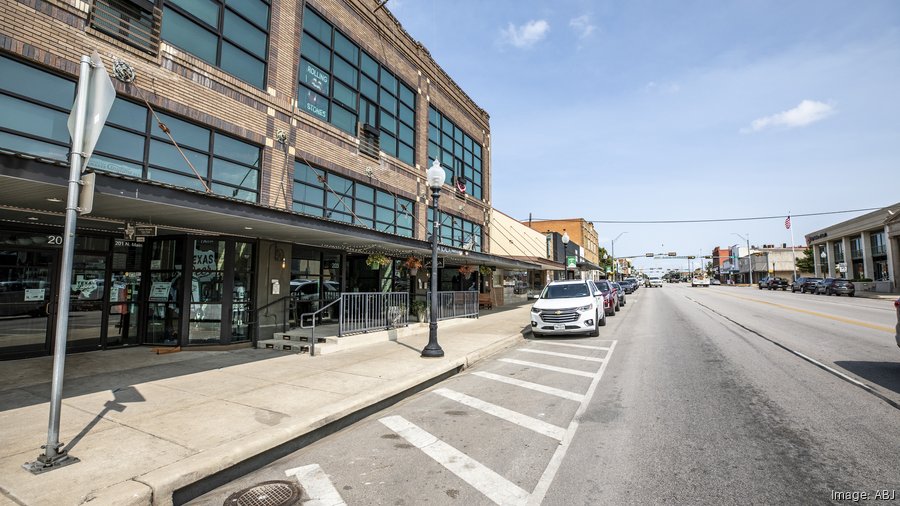
Tiny Texas town transforming — and possibly saved
Federal officials called the investment "transformative" for the region, and more specifically, the city of Taylor, which has a population of about 17,000. One senior administration official credited how committed local officials have been in helping support the project, recalling how during a visit to the site years ago local officials were handing out their business cards translated into Korean.
In addition to the physical expansion, the CHIPS Act funding includes roughly $40 million for Samsung to expand workforce development efforts that already include internships with Taylor and Manor independent school districts, partnerships with Austin Community College and more.
Also, a senior administration official noted that two dozen suppliers have already committed to co-locating with Samsung at the Taylor site, further proof of the "Samsung effect" that has already been felt as far as Bastrop, Manor and more, where ancillary jobs and investment are pouring in as a result of suppliers moving to the eastern edges of Austin.
Taylor Mayor Brandt Rydell called the announcement "phenomenal." He recalled back to when he, along with a small group of local officials, started quietly working on bringing the project to the city about 40 miles northeast of Austin years ago. The forthcoming investment "lends credence to our belief at that time" that it was just the first of many, he said.
"I'm very, very happy to Samsung for exhibiting their confidence in Taylor to making that additional investment," said Rydell, who is not seeking reelection and will leave his position in May.
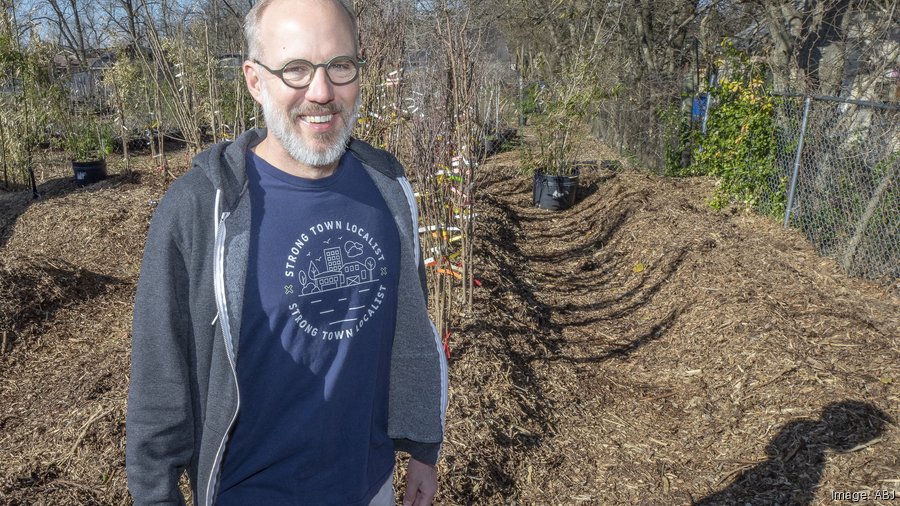
Williamson County Judge Bill Gravell, who was also in the group that helped bring Samsung to Taylor, said the "impact will be felt for generations to come."
"Inviting Samsung to call Williamson County home has eclipsed all of our expectations. Williamson County has become a world leader in developing an ecosystem for the semiconductor industry," Gravell said.
The signs of that transformation are already underway. Traffic has increased both along U.S. Highway 79 that leads into town and is the main arterial road to the factory. Revitalization is underway in downtown to support an influx of workers. New housing and mixed-use developments are also on the docket.
Rydell said it all "is part of the growing pains" of a project of this size. But he shared a story of how he was eating at a local restaurant over the weekend, and the owners said before Samsung came to town, they were fearful of closing.
"With Samsung's arrival and all the economic activity that has come with that, they are setting records, in terms of sales at the restaurant. What a relief it has been for them to have a lifeline thrown," Rydell said. "That was very heartening to hear."
Big investments continue
The announcement marks another significant milestone as Biden and his administration continue to unveil CHIPS Act awards throughout the country.
The CHIPS Act provides $39 billion of investment for both direct manufacturers and those in the supply chain, and many in Austin besides Samsung are hoping to get a piece of it. Many Texas legislators were directly involved in the passing of the bipartisan bill, including Rep. Michael McCaul, R-Texas.
With Samsung's announcement, federal officials have now awarded six grants: $8.5 billion to Intel for its new facility in Ohio, $6.6 billion — plus up to $5 billion in loans — for TSMC in Arizona, $6.4 billion for Samsung, $1.5 billion for GlobalFoundries Inc. for investment in Vermont and New York, $162 million for Microchip Technology Inc. to expand in Oregon and Colorado, plus $35 million for BAE Systems Inc. to expand in New Hampshire.
Federal officials pointed out that they have had requests for funding exceeding $70 billion, meaning that each award has been the result of a "dynamic defined by tough negotiation." That has led to commitments of $240 billion of total investment in the semiconductor industry country-wide.
As a whole, the department has received more than 630 statements of interest, more than 180 pre-applications and full applications for large manufacturers and more than 160 small supplier concept plans. Announcements are expected to continue throughout 2024.
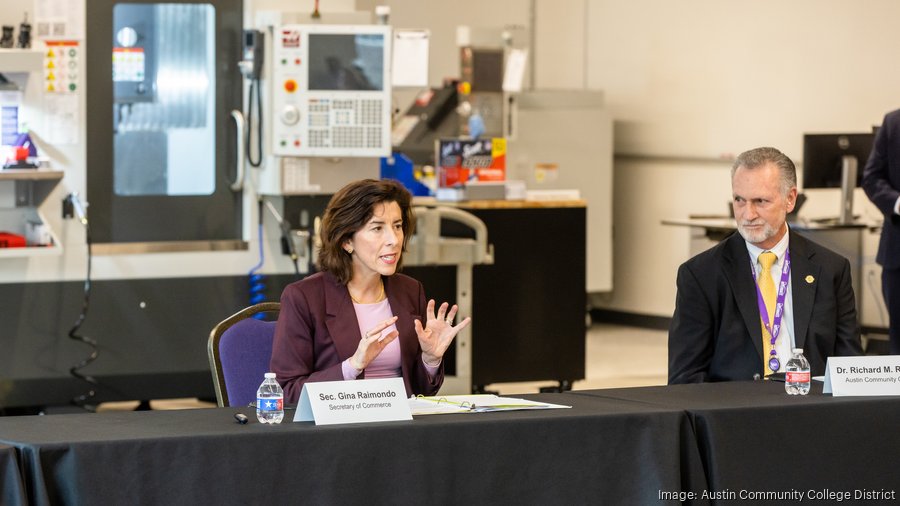
Raimondo, the U.S. Department of Commerce head, said that it goes a long way toward the administration's ultimate goal of bringing 20% of leading-edge manufacturing chips in the U.S. by the end of the decade. That industry is currently concentrated in Taiwan and China, the latter of which is in a geopolitical standoff with the U.S. That makes current conditions untenable and weakens economic and political security, she said.
"It puts us on track to have a secure supply chain in our country," Raimondo said. "I've never been prouder of President Biden because it's his vision, his leadership, his persistence that has led us to this day. It's super exciting and I can't wait for (April 15)."
Austin employees
| Rank | Prior Rank | Company name (Prior rank) |
|---|---|---|
1 | 1 | Tesla Inc. |
2 | 2 | Dell Technologies Inc. |
3 | 3 | Amazon |
